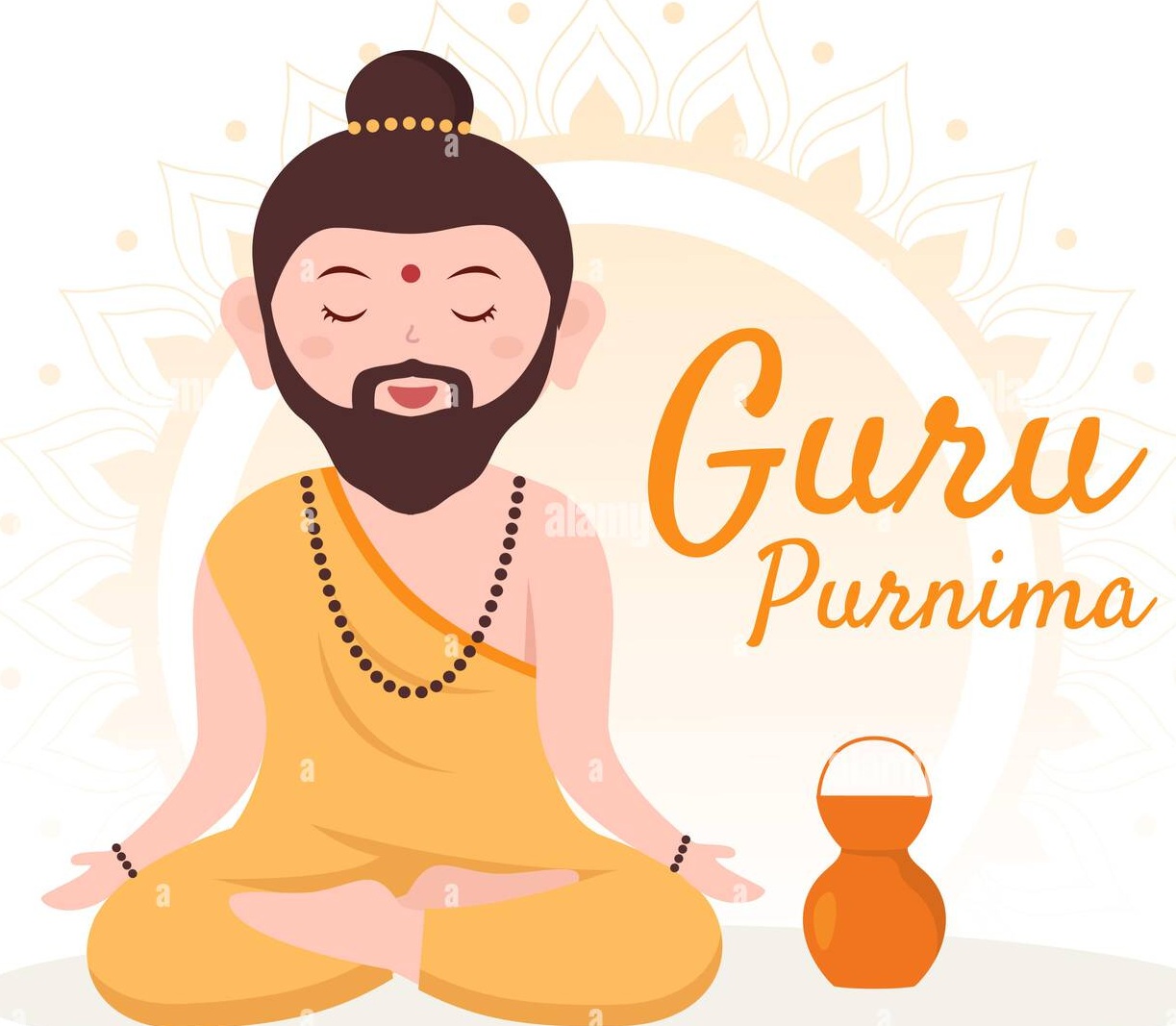

According to the Hindu calendar, Guru Purnima is celebrated on the full moon day or Purnima in the month of Ashadha. This is widely practised by Hindus, Buddhists, and Jains. For all of them, it is to honour the gurus or the teacher. However, the stories of the origin of the celebration are different for each religion.
According to Hindu tradition, Guru Purnima is when Lord Shiva transferred his knowledge to seven followers or "sapatarishis." Because of this, Lord Shiva came to be known as a guru. So, Guru Purnima is celebrated to honour Lord Shiva, his valuable teachings, and his seven followers.
Guru Purnima is also known as Vyasa Purnima because Ved Vyasa, the author of Mahabharata, was born on this day. Therefore, the name Vyasa Purnima came into existence.
After attaining enlightenment under the Bodhi tree, Buddha gave his first sermon on a full moon day; hence, it is known as Dharma Chakra Pravartana. His disciples dedicated this day to him to reflect on the teachings of Buddha.
In Jain tradition, Guru Purnima is observed to honour Lord Mahavira, the 24th Tirthankara, who made his disciple, Gautam Swami, the first chief disciple. This day is dedicated to remembering his teachings.
The Education Department of Madhya Pradesh issued a circular on July 16, 2024 (circular no. 1159/2152561/2024/20-2). Through this circular, the education department has ordered aided and non-aided schools to organise a two-day celebration of Guru Purnima. The programs are scheduled as follows:
On July 20, 2024, soon after the prayer, the teachers must explain the importance of Guru Purnima and the traditional relation between Guru and Shishya (master and disciple). Conduct Essay writing on the relevance of Gurukul tradition.
On July 21, 2024, Veena must be played, honouring goddess Saraswati and teachers, lighting the lamp, and garlanding.
Every school has designed the activities and curriculum for the year in advance. September 5 is set apart as Teachers' Day to honour them on the birthday of Dr Sarvepalli Radhakrishnan, the second president of India. Besides this, what is the relevance of a separate celebration to honour the teachers in the school on the occasion of Guru Purnima?
Without any exceptions, everyone in our country accepts our freedom fighters, great people of the land, and the nation's festivals. But one's religious celebrations must not be imposed on the other. India is a secularistic country where the state doesn't subscribe to any religion, and at the same time, the state is not against any religion. The state should not try to religionise educational institutions.
The celebration of Guru Purnima is a purely religious ceremony, and the Department of Education imposing it on all the educational institutions in the state is disrespectful to the constitutional values of Secularism and Freedom of Religion. Hindus, Buddhists, and Jains have the right and freedom to celebrate the festival of Guru Purnima according to the significance of their religion.
In the state of Madhya Pradesh, there are schools run by and students belonging to other religious communities also, such as Christians and Muslims who are not devotees of the goddess Saraswati. Through this circular, the education department of Madhya Pradesh is trying to infiltrate the religious freedom of the non-Hindus.
This circular doesn't stand because it violates the basic principles of the Constitution. No wing of the government is above the Constitution, so the circular is void and not binding. The state cannot demand that a religious ceremony be performed in an educational institution. It's an act of sacrilege for monotheistic religions like Christians and Muslims to light a lamp or garland or to do any form of worship to other gods or goddesses.
We, the Christians, respect the ancient culture and legacy of our motherland, India. The Christian education institutions in the state of Madhya Pradesh, as well as all over India, render great service in the field of education. We always respect the religious sentiments of our students, so we never impose our religious practices on non-Christian students. But we educate our students on the foundation of values like love, patience, and mercy. The Christian education institutions are the education institutions of secularism. Though there are visible and invisible attacks and hate against Christians, the majority of Indians love Christian schools because they trust the values given by the Christians.
Therefore, I humbly request the Madhya Pradesh government and the board of education to allow educational institutions to remain secular. Let us identify the difference between a religious institution and an educational institution and keep a clear separation between them.